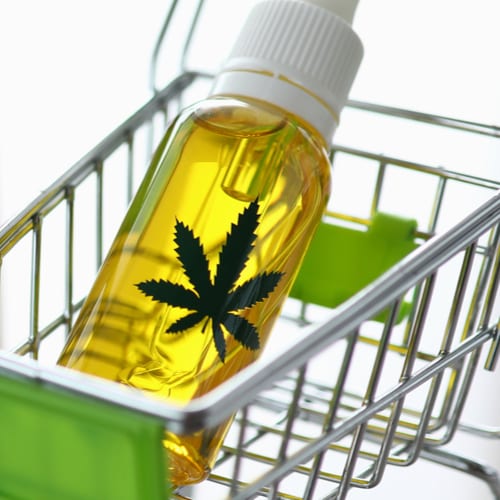
Starting next year, job seekers in New York City and Nevada will no longer have to worry about whether they’ll flunk a pre-employment drug test — and lose out on a job — because of that joint they smoked the week before.
Legislators in both jurisdictions recently passed new laws, among the first of their kind, that set guidelines for how employers can treat prospective employees who smoked marijuana prior to taking a job.
These new laws don’t force companies to tolerate workers who are high on the job. But they could spell the beginning of the end for a drug test that’s been commonplace for decades, as lawmakers elsewhere loosen their own weed restrictions and employers take a closer look at the policies they have in place when considering a job candidate’s pot use.
Most states now allow medical marijuana and, in some cases, require employers to accommodate and not discriminate against workers who are prescribed it. So far, 11 states also have legalized recreational cannabis, with Illinois being the most recent to join the ranks.
These new pre-employment testing laws in Nevada and New York City, however, follow in the footsteps of Maine and make it illegal to skip over a job candidate simply because of their previous marijuana use, for any reason.
Both medical and recreational pot are legal in Nevada. Not so in New York. While medical marijuana is legal, recreational marijuana failed to gather enough support for legalization, though the legislature has paved the way for municipalities (New York City in particular) to move forward with decriminalization of possession of small amounts of marijuana.
The laws in Nevada and New York City tackle the issue of pre-employment testing in different ways. In Nevada, AB 132, effective January 1, 2020, makes it unlawful for an employer to deny employment because marijuana showed up in a screening test, which is similar to Maine’s law.
In New York City, Int. No. 1445-A actually prohibits employers, labor organizations, and employment agencies and their agents from requiring prospective employees to submit to a marijuana test as a condition of employment. Interestingly, employers may test for marijuana post-hire, if they find it necessary for their screening programs. Companies must comply effective May 10, 2020.
The laws provide some exclusions for specific occupations, especially safety-sensitive ones.
In Nevada, those exceptions include firefighters, emergency medical technicians and jobs that require employees to operate a motor vehicle and submit, by federal or state law, to screening tests.
The New York City law excludes law enforcement positions; some construction roles; work that mandates a commercial driver’s license; jobs that involve supervising children, medical patients or vulnerable people; and jobs where state or federal statutes or regulations require a pre-employment drug test, among other exceptions.
More State Laws to Come
These latest laws are just another example that legislators across the country are ready to legalize marijuana even as the federal government continues to consider it a Schedule 1 illegal drug.
Elsewhere around the country, other states are relaxing restrictions too.
On July 2, New Jersey legislators approved an amendment to the state’s existing medical marijuana act, providing new employment protections for workers who use pot for approved medical reasons. The law now expressly prohibits an employer from taking any adverse employment action against a medical marijuana user if the action is based only on the employee’s status as a patient who has been prescribed the drug.
New Mexico’s SB 406, which went into effect June 14, expands the types of conditions that are eligible for medical marijuana treatment and protects users from pay cuts, terminations, demotions and other adverse job actions related to it.
Oklahoma lawmakers also amended the state’s existing laws to keep employers from punishing workers for medical marijuana use and require some accommodations. It takes effect August 29.
And Illinois’ HB 1438, which goes into effect on January 1, 2020, legalizes the recreational use and purchase of cannabis and expunges the records of individuals convicted of purchasing or possessing 30 grams or less of the drug. Illinois joins Michigan as only the second state in the Midwest to legalize cannabis for recreational use, a move that could encourage more states to approve legalization in a region that has, so far, been slow to act.
Coming to Terms with Off-Duty Conduct
Drug testing has played a central role in employment screening since the mid-1980s. But, with the continued shift toward legalization, more companies are moving away from marijuana testing altogether unless they employ people in positions where safety is critical.
Going forward, employers should familiarize themselves with cannabis laws where they operate and review any legal requirements to reasonably accommodate workers who may use the drug.
In light of trends that favor permissible marijuana use, employers should also take a very careful look at the impact of marijuana screening programs and whether they provide substantive protection to their employment brand, their colleagues and their clients. With the legal landscape evolving, employers will have to ask if pre-employment marijuana screening is worthwhile for individuals who are not in safety-sensitive positions.
And, finally, employers should consider, with legal counsel, whether it’s time to develop and adapt their own policies to ensure that workers aren’t punished for their lawful marijuana use when they’re off the clock.
Source: Forbes.com





